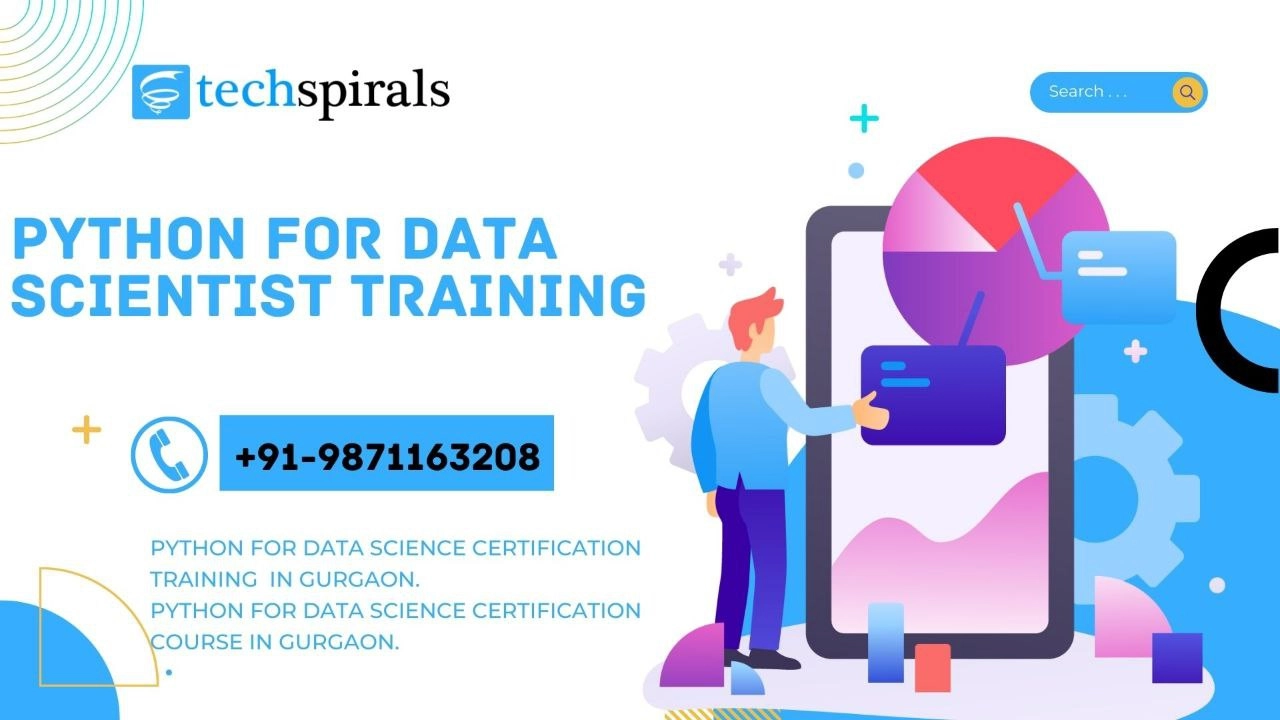Introduction to Python For Data Scientist
Python is a popular programming language in the data science industry. Due to its readability, simplicity, and large user base, it is the ideal language for data scientists to adopt while modelling and data analysis. NumPy, Pandas, and Matplotlib are just a few of the many Python tools and packages designed specifically for manipulating, presenting, and analysing data. Python also has interfaces for a variety of data sources and machine learning frameworks, making it easy to integrate and analyse data quickly. The principles of Python programming as well as how to apply it to data science will be covered in this course for participants. The subjects covered include data structures, data analysis, and machine learning.
Skills you will learn
- Fundamentals of Python programming, including data structures, control flow, and functions.
- Manipulating and cleaning data using libraries such as NumPy and Pandas.
- Visualising data using libraries such as Matplotlib and Seaborn.
- Performing statistical analysis and hypothesis testing.
- Implementing machine learning algorithms using libraries such as scikit-learn.
- Solving real-world data science problems and applying the concepts learned in the course to practical scenarios.
- Communicating results and insights effectively through data visualisation and presentation techniques.
Syllabus
- Introduction to Python programming:
- Overview of Python and its data structures
- Control flow and functions
- File I/O and exceptions
- Data Manipulation with Python:
- Loading and cleaning data using NumPy and Pandas
- Exploratory Data Analysis (EDA) techniques
- Data manipulation and transformation
- Data Visualization:
- Introduction to Matplotlib and Seaborn
- Creating various types of plots and charts
- Customising plots and visualising large data sets
- Statistical Analysis:
- Descriptive statistics and hypothesis testing
- Inferential statistics and confidence intervals
- Regression analysis and correlation
- Machine Learning with Python:
- Overview of machine learning concepts
- Implementing algorithms such as linear regression, logistic regression, and decision trees using scikit-learn
- Model evaluation and selection
- Overfitting and regularisation
- Case Studies and Applications:
- Solving real-world data science problems using Python
- Applying concepts learned in the course to practical scenarios
Reason to join techspirals:
- Embrace the FutureIt's important to keep up with changes in the technology world. By signing up with Tech Spiral, you'll have access to the best tools and strategies for advancing your career in technology.
- Learn from the Best: At Tech Spiral, you'll receive instruction from seasoned experts with years of practical expertise. Your professional growth and development will benefit greatly from their perceptions, expertise, and experience.
- Connect and Collaborate: Being a part of Tech Spiral gives you the chance to meet others who share your interests and establish deep professional relationships. As a team, you'll benefit from one another's knowledge and forge solid relationships with coworkers and friends.
- Invest in Yourself: By spending money on your training and career advancement, you are investing in the future. A step towards a fruitful and rewarding career in technology is joining Tech Spiral.
Choose Your Own Path: You'll have the opportunity to steer your own professional path and create your own chances with the information and skills you acquire via Tech Spiral. You'll have the freedom to follow your interests and leave your imprint on the technological world.

